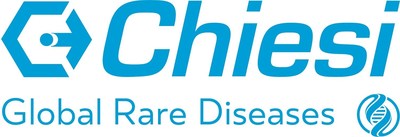Protalix BioTherapeutics and Chiesi Global Rare Diseases Present Key Clinical Data of Pegunigalsidase Alfa for the Treatment of Fabry Disease at the 17th Annual WORLDSymposium™ 2021
Protalix BioTherapeutics (NYSE American: PLX) announced the final results of its Phase III BRIDGE clinical trial for pegunigalsidase alfa, aimed at treating Fabry disease. The findings indicate a significant improvement in renal function, with the eGFR slope changing from -5.90 to -1.19 mL/min/1.73m²/year after switching from agalsidase alfa. The trial involved 22 patients, of whom 20 completed the study, with most opting for a long-term study extension. Safety assessments showed that pegunigalsidase alfa was well tolerated, with mostly mild adverse events reported. Further details will be shared at the WORLD Symposium 2021.
- Improvement in mean annualized eGFR slope from -5.90 to -1.19 mL/min/1.73m²/year.
- 20 out of 22 patients completed the study, with 18 opting for long-term extension.
- Pegunigalsidase alfa was well tolerated; majority of adverse events were mild.
- 20% of patients developed persistent anti-drug antibodies, with 10% having neutralizing activity.
Insights
Analyzing...
CARMIEL, Israel, and BOSTON, Feb. 10, 2021 /PRNewswire/ -- Protalix BioTherapeutics, Inc. (NYSE American: PLX) (TASE: PLX), a biopharmaceutical company focused on the development, production and commercialization of recombinant therapeutic proteins produced by its proprietary ProCellEx® plant cell-based protein expression system, and Chiesi Global Rare Diseases, a business unit of Chiesi Farmaceutici S.p.A., an international research-focused healthcare Group (Chiesi Group), today announced that final results from the Phase III BRIDGE clinical trial (NCT03018730) of pegunigalsidase alfa (PRX–102), an investigational therapy in development for the potential treatment of Fabry disease, will be presented at the 17th Annual WORLDSymposium™ 2021, a research conference dedicated to lysosomal diseases being held virtually February 8–12, 2021.


The final results, which were first announced in December 2020, will be presented in both an oral and a poster presentation by Prof. Ales Linhart, MD, Charles University, Praha, Czech Republic, a principal investigator in the Phase III clinical trials of PRX–102 for the potential treatment of Fabry disease. The Company has already announced the schedule of the presentations.
The BRIDGE clinical trial was a Phase III 12 month open label, single arm switch over study evaluating the safety and efficacy of pegunigalsidase alfa, 1 mg/kg infused every two weeks, in up to 22 Fabry patients previously treated with agalsidase alfa, marketed by Takeda Pharmaceutical Company Limited (formerly Shire Plc) as Replagal®, for at least two years and on a stable dose for at least six months. Replagal is not approved in the United States.
The data to be presented by Prof. Linhart showed substantial improvement in renal function as measured by mean annualized estimated Glomerular Filtration Rate (eGFR slope) in both male and female patients who were switched from agalsidase alfa to pegunigalsidase alfa.
Twenty of twenty-two patients completed the 12-month treatment duration, 18 of which opted to roll over to a long-term extension study and continue to be treated with pegunigalsidase alfa.
In the BRIDGE study, the mean annualized eGFR slope of the study participants improved from -5.90 mL/min/1.73m2/year while on agalsidase alfa to -1.19 mL/min/1.73m2/year on PRX-102 in all patients. Male patients improved from -6.36 mL/min/1.73m2/year to –1.73 mL/min/1.73m2/year and female patients improved from -5.03 mL/min/1.73m2/year to –0.21 mL/min/1.73m2/year. Following the switch to pegunigalsidase alfa there was a decrease in patients with progressing or fast progressing kidney disease, and the majority of patients achieved a stable status post-switch.
An immunogenicity assessment indicated that four out of 20 patients (
Baseline characteristics of the 20 patients that completed the study, ranging from ages 28 to 60 years, were as follows: mean eGFR 75.87 mL/min/1.73m2 in males, and 86.14 mL/min/1.73m2 in females and plasma lyso-Gb3 mean levels were 51.81 nM and 13.81 nM in males and females, respectively. While lyso-Gb3 levels remain slightly high, particularly within the male cohort, continuous reduction in lyso-Gb3 levels was observed of 19.55 nM (
"The final analysis of the BRIDGE Study in Fabry patients previously treated with agalsidase alfa demonstrates a potential benefit of pegunigalsidase alfa on renal function," said Prof. Linhart.
Pegunigalsidase alfa was well tolerated in the study, with all adverse events being transient in nature without sequelae. Among the 22 patients enrolled in the BRIDGE study, the majority of treatment emergent adverse events were mild or moderate in severity (
Additional details can be found on the WORLDSymposium website at https://worldsymposia.org/. Copies of the presentation materials will be made available on Protalix's website under the Presentations tab in the Investors section at the time of the poster session.
About Fabry Disease
Fabry disease is an X-linked inherited disease that results from deficient activity of the lysosomal α-Galactosidase-A enzyme resulting in progressive accumulation of abnormal deposits of a fatty substance called globotriaosylceramide (Gb3) in blood vessel walls throughout a person's body.
Fabry disease occurs in one person per 40,000 to 60,000. Fabry patients inherit a deficiency of the α-Galactosidase-A enzyme, which is normally responsible for the breakdown of Gb3. The abnormal storage of Gb3 increases with time and, accordingly, Gb3 accumulates, primarily in the blood and in the blood vessel walls. The ultimate consequences of Gb3 deposition range from episodes of pain and impaired peripheral sensation to end-organ failure – particularly of the kidneys, but also of the heart and the cerebrovascular system.
About Pegunigalsidase Alfa
Pegunigalsidase alfa (PRX-102) is an investigational, plant cell culture-expressed, and chemically modified stabilized version of the recombinant α-Galactosidase-A enzyme. Protein sub-units are covalently bound via chemical cross-linking using short PEG moieties, resulting in a molecule with unique pharmacokinetic parameters. In clinical studies, PRX–102 has been observed to have a circulatory half-life of approximately 80 hours. PRX–102 has been designed to potentially address the continued unmet clinical need in Fabry patients.
About Chiesi Global Rare Diseases
Chiesi Global Rare Diseases is a business unit of the Chiesi Group established in February 2020 and focused on research and development of treatments for rare and ultra-rare disorders. The Global Rare Diseases unit works in collaboration with Chiesi Group to harness the full resources and capabilities of our global network to bring innovative new treatment options to people living with rare diseases, many of whom have limited or no treatments available. The unit is also a dedicated partner with global leaders in patient advocacy, research and patient care. For more information visit www.chiesiglobalrarediseases.com.
About Chiesi Group
Based in Parma, Italy, Chiesi Farmaceutici is an international research-focused healthcare group with 85 years of experience in the pharmaceutical industry and a global presence in 29 countries. Chiesi researches, develops, and markets innovative drugs in the respiratory therapeutics, specialist medicine, and rare disease areas. Its R&D organization is headquartered in Parma (Italy), and is integrated with R&D groups in France, the USA, the UK, and Sweden to advance Chiesi's pre-clinical, clinical, and registration programs. Chiesi employs nearly 6,000 people.
Chiesi Group is a certified Benefit corporation. For more information, please visit www.chiesi.com.
About Protalix BioTherapeutics, Inc.
Protalix is a biopharmaceutical company focused on the development and commercialization of recombinant therapeutic proteins expressed through its proprietary plant cell-based expression system, ProCellEx®. Protalix was the first company to gain FDA approval of a protein produced through plant cell-based in suspension expression system. Protalix's unique expression system represents a new method for developing recombinant proteins in an industrial-scale manner.
Protalix's first product manufactured by ProCellEx, taliglucerase alfa, was approved for marketing by the U.S. Food and Drug Administration in May 2012 and, subsequently, by the regulatory authorities of other countries. Protalix has licensed to Pfizer Inc. the worldwide development and commercialization rights for taliglucerase alfa, excluding Brazil, where Protalix retains full rights.
Protalix's development pipeline consists of proprietary versions of recombinant therapeutic proteins that target established pharmaceutical markets, including the following product candidates: pegunigalsidase alfa, a modified version of the recombinant human α–Galactosidase–A protein for the proposed treatment of Fabry disease; OPRX–106, an orally- delivered anti-inflammatory treatment; alidornase alfa for the treatment of Cystic Fibrosis; and others. Protalix has partnered with Chiesi Global Rare Diseases, both in the United States and outside the United States, for the development and commercialization of pegunigalsidase alfa.
Forward-Looking Statements
To the extent that statements in this press release are not strictly historical, all such statements are forward-looking, and are made pursuant to the safe-harbor provisions of the Private Securities Litigation Reform Act of 1995. The terms "expect," "anticipate," "believe," "estimate," "project," "plan," "should" and "intend," and other words or phrases of similar import are intended to identify forward-looking statements. These forward-looking statements are subject to known and unknown risks and uncertainties that may cause actual future experience and results to differ materially from the statements made. These statements are based on our current beliefs and expectations as to such future outcomes. Drug discovery and development involve a high degree of risk and the final results of a clinical trial may be different than the preliminary findings for the clinical trial. Factors that might cause material differences include, among others: failure or delay in the commencement or completion of our preclinical and clinical trials which may be caused by several factors, including: risks that the FDA will not accept an application for accelerated approval of PRX–102 with the data generated to date or will request additional data or other conditions of our submission of any application for accelerated approval of PRX–102; unforeseen safety issues; determination of dosing issues; lack of effectiveness during clinical trials; inability to monitor patients adequately during or after treatment; inability or unwillingness of medical investigators and institutional review boards to follow our clinical protocols; and slower than expected rates of patient recruitment; risks associated with the novel coronavirus disease (COVID–19) outbreak, which may adversely impact our business, preclinical studies and clinical trials; the risk that the results of the clinical trials of our product candidates will not support our claims of safety or efficacy, that our product candidates will not have the desired effects or will be associated with undesirable side effects or other unexpected characteristics; risks related to our ability to maintain and manage our relationship with Chiesi Farmaceutici and any other collaborator, distributor or partner; risks related to the amount of our future revenues and expenditures; the risk that despite the FDA's grant of fast track designation for PRX–102, we may not experience a faster development process, review or approval compared to applications considered for approval under conventional FDA procedures; risks related to the FDA's ability to withdraw the fast track designation at any time; our dependence on performance by third party providers of services and supplies, including without limitation, clinical trial services; delays in our preparation and filing of applications for regulatory approval; delays in the approval or potential rejection of any applications we file with the FDA or other health regulatory authorities, and other risks relating to the review process; the inherent risks and uncertainties in developing drug platforms and products of the type we are developing; the impact of development of competing therapies and/or technologies by other companies and institutions; potential product liability risks, and risks of securing adequate levels of product liability and other necessary insurance coverage; and other factors described in our filings with the U.S. Securities and Exchange Commission. The statements in this press release are valid only as of the date hereof and we disclaim any obligation to update this information, except as may be required by law.
Investor Contact
Chuck Padala, Managing Director
LifeSci Advisors
646-627-8390
chuck@lifesciadvisors.com
SOURCE Protalix BioTherapeutics, Inc.; Chiesi







